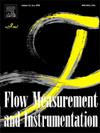An outlier robust detection method for online monitoring data of dissolved gases in transformer oils
IF 2.3
3区 工程技术
Q2 ENGINEERING, MECHANICAL
引用次数: 0
Abstract
The concentration of gas in insulation oil is the main basis for judging the health status of transformers. A robust detection method for outliers based on online monitoring data of dissolved gas in transformer oil is proposed to judge the operation status of transformers more accurately. The online detection device for dissolved gas in transformer oil based on tunable laser absorption spectroscopy (TDLAS) multicomponent gas is designed. Based on the near-infrared absorption band of the basic fault characteristic gas of the transformer, lasers with different wavelengths are selected, combined with semiconductor sensors to measure the characteristic gas, and the second harmonic wave to the gas phase concentration is completed based on the piecewise linear fitting of the least squares, the conversion calculation from gas phase to liquid phase enables online monitoring data acquisition of dissolved gas in transformer oil. Based on the robust statistical theory and the characteristics of the abnormal value of the online monitoring data of dissolved gas in transformer oil, a robust multivariate detection method of minimum covariance determinant (MCD) for the abnormal value of characteristic gas is proposed. This method uses the idea of iteration and Mahalanobis distance to construct a robust covariance estimator, detect the abnormal value, and classify the abnormal and normal data. To solve the problem that the MCD algorithm may fain under specific conditions in the detection process, an optimization algorithm of MCD algorithm - high-dimensional robust covariance matrix robust estimation algorithm (MRCD) is proposed to improve the robustness of the detection process. The experimental results show that the absolute error of the on-line monitoring data acquisition results of dissolved gas in transformer oil is controlled within 2 μL/L, and the abnormal values in the monitoring data can be accurately detected, and the detection reliability is high, which meets the requirements of practical application.
求助全文
约1分钟内获得全文
求助全文
来源期刊

Flow Measurement and Instrumentation
工程技术-工程:机械
CiteScore
4.30
自引率
13.60%
发文量
123
审稿时长
6 months
期刊介绍:
Flow Measurement and Instrumentation is dedicated to disseminating the latest research results on all aspects of flow measurement, in both closed conduits and open channels. The design of flow measurement systems involves a wide variety of multidisciplinary activities including modelling the flow sensor, the fluid flow and the sensor/fluid interactions through the use of computation techniques; the development of advanced transducer systems and their associated signal processing and the laboratory and field assessment of the overall system under ideal and disturbed conditions.
FMI is the essential forum for critical information exchange, and contributions are particularly encouraged in the following areas of interest:
Modelling: the application of mathematical and computational modelling to the interaction of fluid dynamics with flowmeters, including flowmeter behaviour, improved flowmeter design and installation problems. Application of CAD/CAE techniques to flowmeter modelling are eligible.
Design and development: the detailed design of the flowmeter head and/or signal processing aspects of novel flowmeters. Emphasis is given to papers identifying new sensor configurations, multisensor flow measurement systems, non-intrusive flow metering techniques and the application of microelectronic techniques in smart or intelligent systems.
Calibration techniques: including descriptions of new or existing calibration facilities and techniques, calibration data from different flowmeter types, and calibration intercomparison data from different laboratories.
Installation effect data: dealing with the effects of non-ideal flow conditions on flowmeters. Papers combining a theoretical understanding of flowmeter behaviour with experimental work are particularly welcome.
 求助内容:
求助内容: 应助结果提醒方式:
应助结果提醒方式:


